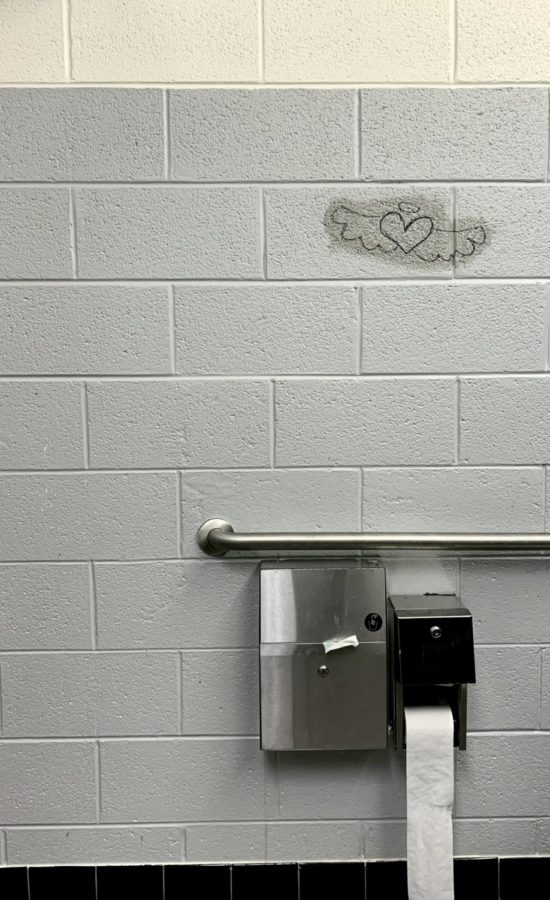MCPS pilots vape detectors in six high schools’ bathrooms, including RM
Students often gather in groups in the large accommodated stall. One can sometimes find graffiti on bathroom walls.
May 2, 2023
Through a new pilot program, MCPS will be installing vape detectors in the bathrooms of six high schools: RM, John F. Kennedy, Northwood, Paint Branch, Quince Orchard and Walt Whitman. Installations begin this week and they will remain until the end of the school year.
There are three separate detection systems, designed to alert staff via text or email when they identify smoke or vape fumes.
Sophomore Nicole Walker feels that detectors alone cannot reduce vaping. “Giving them space where they don’t feel like they need to [vape] in the first place would be way more effective than punishment,” she said.
The detectors will be installed in bathrooms. “As a lot of students and community members know, vaping in bathrooms has been a concern, I would say for a number of years now,” RM principal Alicia Deeny said.
“There was a specific school in Montgomery County. The security team went in and actually [the students] were transported to the hospital, just because they got the remnants of the odor, or the fentanyl burning inside the bathrooms,” RM head of security Dennis Whalen said. “Same thing with the vapes. The vapes are in the bathrooms.”
The program also provides substance use intervention and prevention outreach.
“We have an on-site social worker, we have two staff that are through our Bridge to Wellness program and so there is a range of possibilities,” Ms. Deeny said. “The crisis center has a lot of referrals then to organizations that support students if there’s a concern with like substance abuse.”
Currently, the MCPS Student Code of Conduct imposes disciplinary actions on students who engage in the use of illegal drugs, vaping devices or tobacco products in school. “There’s going to be loopholes, students are going to do it no matter what. It’s a good idea, but I don’t think that it’s being executed in the best way,” freshman Isabel Mancada said.
RM has already increased some security measures after two safety threats in January, in both of which a student was found in possession of a gun on school grounds.
“Since our incidents… probably two months ago, you see that we’re in stationary positions at our exterior doors. We also started the ID program, you know, checking IDs, coming into school and after lunch and also being more vigilant on checking the bathrooms,” Mr. Whalen said.
However, RM was not selected as a school for the pilot program because of these specific events. “It’s more to have a representation of schools throughout the district that are trying [installations],” Ms. Deeny said. “I think that [vaping] is a community problem that is happening throughout many many communities in the United States.”
MCPS will continue to enforce its Student Restroom Monitoring Plan in which staff check restrooms more frequently and limit access to certain restrooms. The county is also preparing to pilot other procedures, such as having students wear ID badges during the day and creating weekly safety meetings with security personnel.
After the pilot program concludes, the school system will assess whether it should expand the safety measures across the entire district. “I’m excited that this is something that will make our school a little safer and try to address something that I think students are concerned about as much as adults,” Ms. Deeny said.
The spike in fentanyl overdoses is another concern that the RM administration plans to address this school year. There were 48 youth fentanyl overdoses in Montgomery County last year, 11 of which were fatal. In response to this increase, the school will be holding an assembly on opioid awareness in early June with a lesson on trauma.




